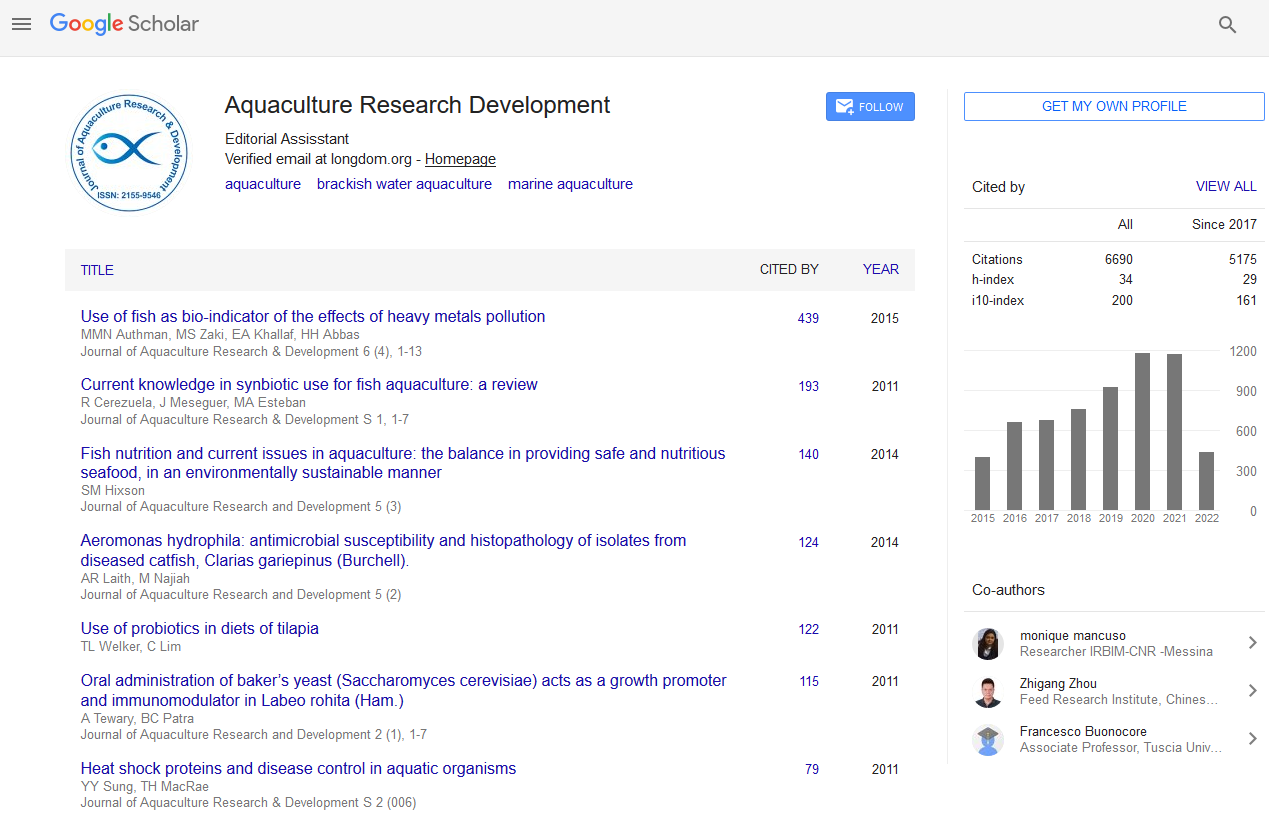PMC/PubMed Indexed Articles
Indexed In
- Online Access to Research in the Environment (OARE)
- Open J Gate
- Genamics JournalSeek
- JournalTOCs
- Scimago
- Ulrich's Periodicals Directory
- Access to Global Online Research in Agriculture (AGORA)
- Electronic Journals Library
- Centre for Agriculture and Biosciences International (CABI)
- RefSeek
- Directory of Research Journal Indexing (DRJI)
- Hamdard University
- EBSCO A-Z
- OCLC- WorldCat
- Scholarsteer
- SWB online catalog
- Virtual Library of Biology (vifabio)
- Publons
- MIAR
- University Grants Commission
- Euro Pub
- Google Scholar
Useful Links
Share This Page
Journal Flyer

Open Access Journals
- Agri and Aquaculture
- Biochemistry
- Bioinformatics & Systems Biology
- Business & Management
- Chemistry
- Clinical Sciences
- Engineering
- Food & Nutrition
- General Science
- Genetics & Molecular Biology
- Immunology & Microbiology
- Medical Sciences
- Neuroscience & Psychology
- Nursing & Health Care
- Pharmaceutical Sciences
The inhibitory effects of algae sulfated polysaccharide extracts on influenza A virus (H1N1) infections
International Conference on Aquaculture & Fisheries
July 20-22, 2015 Brisbane, Australia
Chang Jer Wu
Posters-Accepted Abstracts: J Aquac Res Development
Abstract:
In this century, the health of human will be challenged by the newly emerged infectious disease such as SARS, AIDS and Avian flu. Hence, there is an urgent need for new treatments against viral infectious diseases. Influenza is an acute respiratory illness caused by infection with influenza virus. Outbreaks of the infection are very common throughout the world and these results in significant morbidity in the general population and in increased mortality in high risk patients. Recently, a number of investigators have found that the extracts of seaweed present a broad range of biological activities. Consequently, we studied the effects of brown seaweed (Undaria pinnatifida) extracts on influenza A virus (H1N1) infection. This study investigated that Undaria pinnatifida extracts for inhibiting influenza A virus infection on in vitro and in vivo model. In vitro cell assay, the sequence of Undaria pinnatifida extracts treatment are according to the adsorption step of virus infection; then divide into virus adsorption and before virus adsorption (pre-treatment) and after virus adsorption (post-treatment). We use plaque assay, viral RNA expression (real-time PCR) and immune fluorescence assay to study the protective effects of Undaria pinnatifida extracts. The Undaria pinnatifida extracts also have good effects on antioxidant. In vivo, the 6 weeks-old BALB/c mice were injected intra nasally with lethal doses influenza virus and then were observed for symptoms of viral infection and death every day for 14 days. In vitro cell assay, the better inhibition effect of virus adsorption on influenza virus infection is before virus adsorption stage. In BALB/c mice animal model, the 6 weeks-old mice infected with lethal doses influenza virus and the mortality rate is 80-100%. The mice pre-treatment Undaria pinnatifida extracts before virus infection, the mortality rate of these mice are effectively reduced. The seaweed polysaccharide extracts also effectively decrease the lung injury in the H1N1-infected mice. In summary, the Undaria pinnatifida extracts show a protective effect against influenza virus infection on both in cell and animal experiment. Undaria pinnatifida extract may be an ideal candidate worthwhile to develop into anti- influenza virus agents.
Biography :
Chang Jer Wu is current Professor in the Department of Food Science, National Taiwan Ocean University, Taiwan.


